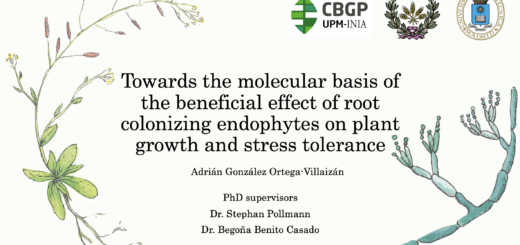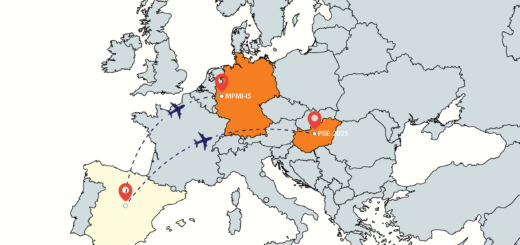Résumé - Curriculum vitae
Academic formation
since 2021
Full Professor
Tech. University of Madrid, ES
2019-2021
Associate Professor
Tech. University of Madrid, ES
2019
National accreditation for Full Professor in Biochemistry and Molecular Biology
ANECA, University Council, ES
2013
Visiting Professor
in the Group of Hans Lambers
University of Western Australia, AUS
2012
National accreditation for
Associate Professor in
Biochemistry and Molecular Biology
ANECA, University Council, ES
2010-2019
I3-Professor
Tech. University of Madrid, ES
2009
Venia legendi (Habilitation)
in Botany
Ruhr-University Bochum, DE
2008
Visiting Professor
in the Group of Josette Masle
The Australian National University, AUS
2004-2010
C1-Professor (Wiss. Assistent)
Ruhr-University Bochum, DE
2003-2004
Postdoc with E.W. Weiler
Ruhr-University Bochum, DE
2002
Dr. rer. nat. (~PhD)
Ruhr-University Bochum, DE
1999
Diploma in Biology (~MSc.)
Ruhr-University Bochum, DE
Brief biography
In 2002, Stephan Pollmann completed his doctorate at the Ruhr-University Bochum (RUB) in Germany working on auxin biosynthesis in the model plant Arabidopsis thaliana. After a short stay in the group of Meinhart H. Zenk at the Biocenter of the Martin-Luther-University Halle-Wittenberg, Germany, he joined the group of Elmar W. Weiler for a Postdoc. In the Department of Plant Physiology of the RUB, he picked up on his work on indole-3-acetic acid (IAA) biosynthesis and focused on an alternative auxin-biosynthetic pathway that proceeds via the intermediate indole-3-acetamide (IAM).
From 2004 until 2010, Stephan Pollmann held a position as Independent Research Group Leader and C1-Professor (Wiss. Assistent) at the RUB, where he deepened his knowledge in mass spectrometry and live cell imaging. Along with his scientific work, he headed the Plant Hormone/Secondary Metabolite mass spec facility of the Department of Plant Physiology between 2006 and 2010. During this time, he established AMIDASE1 as an additional player in the auxin-biosynthetic grid, and falsified the participation of TRYPTOPHAN DECARBOXYLASES in auxin formation in Arabidopsis thaliana. Moreover, he discovered a novel link between jasmonate signaling and auxin formation. The latter is realized through the jasmonate-governed transcriptional regulation of YUCCA8 and YUCCA9, two key players in auxin biosynthesis.
Currently, the group of Stephan Pollmann is located at the Center for Plant Biotechnology and Genomics (UPM-INIA), Spain. After joining the CBGP in 2010, Stephan Pollmann was decisively involved in the establishment of a state-of-the-art metabolomics unit at the center, which he is heading since 2011. At present, the Pollmann Lab pursues a number of interconnected research lines, i.e. the elucidation of the physiological role of AMIDASE1 and IAM in plant development, the impact of jasmonate-auxin crosstalk in plant stress responses, and the molecular effect that auxin exerts on the formation of plant cell walls. The group of Stephan Pollmann uses different methodological approaches to achieve their goals ranging from general molecular biology and plant genetics to transcriptomics (microarrays, RNA-Seq), live cell imaging, and advanced mass spectrometry (targeted and non-targeted metabolomics).


